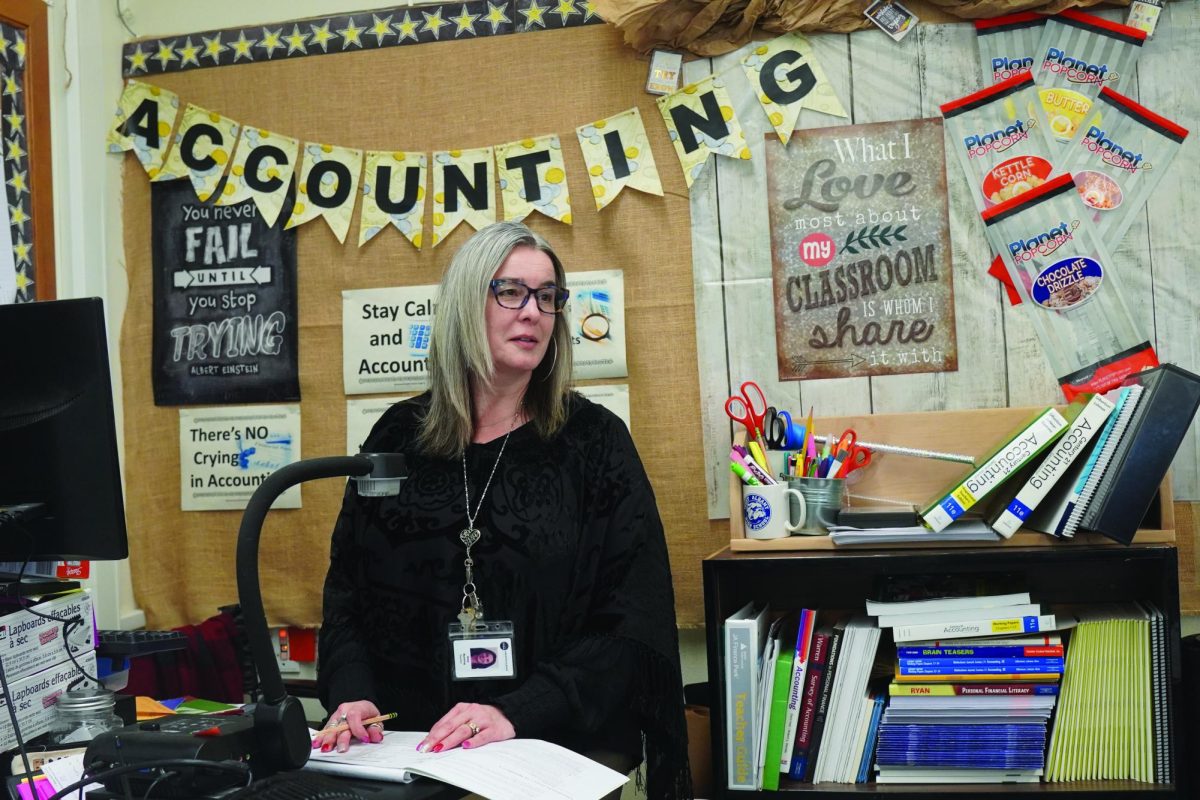When personal finance teacher Joey Running was in high school, there was one thing she knew for sure.“In my senior year of high school, my public speaking teacher suggested, ‘You should be a teacher,’ and I said I am never, ever going to high school again.” As she began college, Running decided to major in computer science, but it quickly became clear to Running that she was not interested in being a programmer.“I would rather use and apply the programs,” Running said, “which I was very good at and really enjoyed at that time.” Yet, as she came to the end of her junior year of college, she needed one more class
to fill her schedule, and the only class that was available was Education 101. “I took this class, and I was like, I’m supposed to be a teacher,” Running said. “It was clear at that point that I was supposed to take what I love doing and help students learn these skills so they can be work-
place ready.”
Running’s first teaching job was teaching an Intro to Business class at her old high school in New York. Since beginning her teaching career in 1992, Running has taught personal finance. This year Running was named the Financial Empowerment Educator of the Year by the National Financial Educators Association. After a conference Running chaired for in February for the Western Business Education Region, Oregon State Treasurer Tobias Read informed her of the competition. “I asked him [Read] to be a keynote speaker,” Running said, “and during that time, he said, ‘We have this empowerment award, if you know of someone who is a champion for personal finance there’s a website to fill out to nominate them.’”
Running was nominated 10 times by students, peers, a state non-profit leader, and the director of the national Jump$tart Coalition for Financial Empowerment. “I felt very supported by my students, by my administrators, by my mentors and colleagues,” Running said. In her classes, Running helps get students workplace-ready and prepared to make good financial decisions in adulthood.“Everybody needs a strong financial foundation to go to the next step,” Running said. Throughout the semester, she says she tried to cover five big categories: credit, investing, banking, savings, and behavioral.
Oftentimes, when people find themselves in negative financial situations, it’s because of easily preventable spending habits; educating students to be aware of the way they spend their money is an effective way to prepare them to be financially successful and independent. Every year around December, Running holds an alumni panel. Alumni come in,
and they share with their takeaways from the class with students and explain how the class that helped them be successful. During this panel, alumni share how they save money when buying cars or how they plan for retirement.
“The best part is when they come back for the alumni panel,” Running said, “and share their story and how this class was able to affect them in positive ways.”




